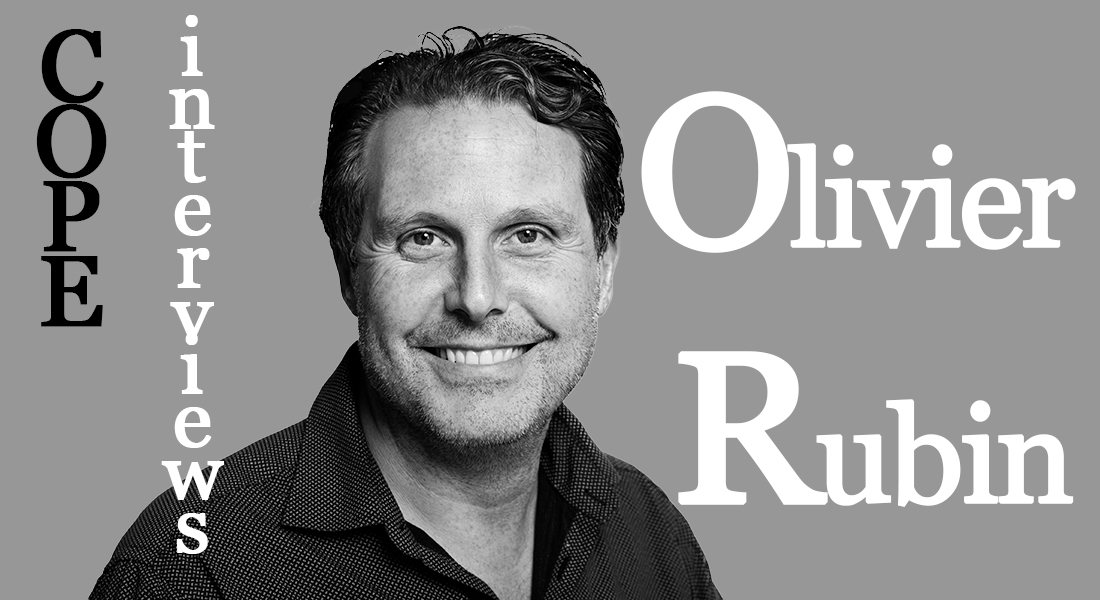Interview with Olivier Rubin
COPE interviews Olivier Rubin, Professor of Disaster Research at Roskilde University and member of the Copenhagen Center for Disaster Research. In this interview, Olivier talks about the nuances of slow-onset crises, the importance of social science inputs in disaster research and his upcoming projects on AMR in Tanzania and political legitimization in the Nordics.

You recently became a professor of Disaster Research. What does that entail?
I’m the first professor in disaster/crisis research at Roskilde University. There has never really been a strong disaster research environment at the university, so I’ve been extremely grateful for COPE, which has allowed me to discuss and cooperate with likeminded disaster interested scholars across multiple disciplines.
In essence, my prime responsibility as a professor will be to strengthen research and teaching in disasters/crises. This primarily entails research in the management of creeping crises and health emergencies as well as in the socio-political implications of these crises. Concretely, I will contribute with insights from crisis/disaster management where relevant in the department’s teaching programs; apply for funding within the theme of disaster/management; and continue to conduct high-level research on disasters/crises.
Tell us more about your focus on slow-onset crises / disasters? Is there anything special about these types of crises?
With my educational background mainly in political science, I’ve specialized in exploring the governance and socio-economic dynamics associated with global disasters and major crises. I mostly focus on the political and bureaucratic dynamics of slow-onset and prolongated disasters such as famines, climate change, pandemics, and antimicrobial resistance. Importantly, all crises have a slow onset in the sense that their underlying vulnerabilities can often be traced to decades of exposure, marginalization, social exclusion, suboptimal organizational practices, and neglect.
However, some crises display manifestations that are more long-term. Intuitively, there are obviously temporal differences between an earthquake and antimicrobial resistance; between an avalanche and a pandemic; and between a tsunami and incrementally rising sea-levels. And these temporal differences matter for how people experience and respond to the crises. The impacts of most of these crises are not only felt in the present, but their peaks might lie ahead. Socially, people might live in dread and anxiety of future adversities that could overshadow life in the present. Politically, these crises are often associated with lower political salience than concentrated disasters.
A lot of the crises you have looked at are health crises (pandemic outbreaks, anti-microbial resistance). Could you tell us more about their particularities?
Most of the basic crisis/disaster management findings can be applied to health crises. Approaching these crises through the prism of crisis/disaster research allows for comparisons and lessons learned that span sectors and disciplines. From a governance perspective, for example, antimicrobial resistance might have more in common with the environmental crisis of climate change than with other public health crises such as pandemic outbreaks. The national and international health agencies responsible for managing health emergencies are increasingly –especially after COVID-19- considering social science inputs.
However, it is important that social science inputs are not only included ad hoc as a qualifier to existing “real” evidence produced by the health or natural sciences. Rather, multidisciplinary inputs, including from the social sciences, should be considered upstream as part of the evidence feeding into the health crisis management. We’re not there yet, but my sense is that we’re moving in the right direction.
Tell us about your future projects. Are you working on anything exciting at the moment?
I’ve just finished a book manuscript on Chronic Crises. These crises are prolongated disasters that continue to impact people’s lives with no immediate end in sight. People and politicians behave differently during such crises compared to more short-lived but high-intensity crises. The book investigates how public and political actors have responded to six global chronic crises, namely famine, waves of multiple starvation deaths, antimicrobial resistance, HIV/AIDS, climate change and COVID-19. The book is scheduled to be out in 2025 on Oxford University Press.
For the next few years, I’ll be involved in two research projects: one ongoing (2023-2026) on antimicrobial resistance in Tanzania where I lead a work package on how to improve knowledge and awareness of antimicrobial resistance using a One Health approach. Another project (2024-2027) is just starting up on the boundaries of legitimation, which focuses on government interventions in Denmark, Norway and Sweden during two crises, namely the COVID-19 pandemic and the threat from the Russian invasion of Ukraine. I’m also likely to be involved in some editing capacity for the publication Oxford Intersection on Disaster Cycles planned for 2025-28.
| If you are interested in Olivier Rubin's work, please visit his researcher page or contact him via e-mail. |
| Roskilde University (RUC) is a partner of the Copenhagen Center for Disaster Research. |
